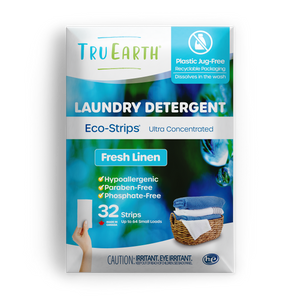Porcelain surfaces are known for their durability and aesthetic appeal. However, traditional cleaning methods that involve harsh chemicals and abrasive scrubbing can damage the surface and potentially shorten its lifespan.
That's where green cleaning comes in. Green cleaning is a holistic approach to cleaning that uses environmentally friendly products and techniques to maintain a clean and healthy living and working environment.
Green cleaning products are non-toxic, biodegradable, and renewable, which makes them safe and sustainable. Regarding porcelain surfaces, using green cleaning methods can not only preserve their beauty and functionality but also contribute to a healthier and more sustainable environment.

Routine Care And Cleaning: What Should You Do?
To keep your porcelain surfaces looking their best, it's important to establish a regular cleaning routine. While basic cleaning with warm water and mild soap is sufficient for glossy porcelain, matte porcelain requires concentrated tile cleaner to be cleaned routinely.
One of the advantages of porcelain surfaces is that they are relatively low maintenance; they do not require any special or expensive cleaning products. However, it's important to avoid using cleaning products that contain harsh chemicals such as acids or ammonia which can damage the surface of the porcelain, particularly glossy surfaces.
In addition, it's essential to dry your porcelain thoroughly after cleaning to avoid the formation of water spots and to prevent any potential staining. Another key tip is to avoid leaving puddles on the porcelain surface, particularly in high traffic areas, as this could cause slipping hazards and may impact the longevity of the porcelain.
By establishing a routine cleaning regime and following some basic care and maintenance tips, you can ensure that your porcelain surfaces continue to look great for many years to come.
Preventing Stains And Scratches
Porcelain surfaces are a popular choice for countertops, thanks to their durability and resistance to scratches, etching, and stains. However, it is important to note that these surfaces are not entirely damage-proof, and certain precautions should be taken to maintain their pristine appearance.
For instance, it is crucial to steer clear of exposing porcelain to permanent inks or dyes, as they might leave behind stubborn stains that are difficult to remove. In case of any accidents, it is recommended that the affected area is rinsed with water immediately and an approved cleaning product is applied. It is also important to wipe up spills as soon as they occur to prevent possible stains, even though porcelain is relatively resistant to staining from food substances like juice, wine, and coffee.
Additionally, it is best to use a cutting board when chopping vegetables or slicing bread on a porcelain countertop to avoid causing scratches. It is also advised to use non-abrasive cleaning products and implements to preserve the surface's gloss and shine.
Last but not least, ensuring that the surface is swept or vacuumed regularly can go a long way in keeping the porcelain countertop in top-notch condition. Following these practical tips, homeowners can enjoy their beautiful porcelain countertops for years to come.
How To Clean A Porcelain Sink
To effectively clean a porcelain sink, you'll need to avoid abrasive cleaners that can scratch the delicate surface of the material. Opt for non-abrasive cleaners instead, such as Tru Earth products or baking soda paste.
Baking soda
When using baking soda, mix it with water to create a thick paste and apply it evenly to the sink's surface. Let the paste sit for several minutes before scrubbing it gently with a soft-bristled brush or sponge. Rinse thoroughly with clean water and dry the sink with a soft cloth to prevent water spots.
If your porcelain sink has developed tough stains or marks, try using a specialized porcelain sink cleaner available in hardware stores. Be sure to read the manufacturer’s instructions and apply the cleaner as directed. With proper care and attention, your porcelain sink can become a centerpiece in your kitchen, boasting a lustrous and spotless appearance.
Tru Earths multi-surface cleaner
Tru Earth’s disinfecting multi-purpose cleaner is a game-changer in the world of cleaning products. Designed specifically to clean and disinfect hard surfaces, this plastic-free cleaner is a sustainable and eco-friendly way to keep your home spotless.

Unlike traditional cleaning products that come in wasteful plastic containers, Tru Earth Disinfecting multi-purpose cleaner is packaged in a biodegradable cardboard sleeve. Using this product is easy - simply take one strip and place it in a spray bottle. Add 250ml of hot water, and give it a shake until the strip is dissolved.
Once you've done this, you're ready to start cleaning! Tru Earth Disinfecting multi-purpose cleaner is highly effective at killing 99% of bacteria, fungi, and viruses, making it an excellent choice for tackling tough cleaning jobs.
Plus, its plant-based formula means it's gentle on surfaces and safe for use around children and pets. So, if you're looking for a sustainable and effective cleaning product, look no further than Tru Earth Disinfecting multi-purpose cleaner.

Deep Cleaning Of Porcelain Stoneware Slabs
When it comes to porcelain stoneware slabs, sometimes ordinary cleaning methods simply won't cut it. In those cases, it's important to use an appropriate detergent that's specifically designed to target the type of dirt you're dealing with.
However, it's important to act quickly when you notice these resistant stains, because the longer you wait, the harder they'll be to remove. To ensure that the cleaning solution you've chosen is effective without risking damage to your slab, it's always a good idea to perform a preliminary test on a small, stained portion before proceeding with the full cleaning process.
It's especially important to avoid using concentrated hydrochloric acid and/or caustic soda or cleaning agents containing hydrofluoric acid and/or its derivatives, as these can cause irreparable damage to your porcelain stoneware.


